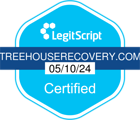Families face one of the greatest burdens that addiction to drugs and alcohol has to offer. Watching a loved one transform under the influence of drugs and alcohol is difficult and painful. Addiction takes complete and total control over a loved one’s life, often leaving families feeling as though they to have lost all control over what happens to a loved one. An intervention most commonly becomes a topic of conversation when a family has hit their own “bottom” of trying to help their loved one. Having exhausted all options, families recognize the need to bring in a professional and try one more time to bring their loved one’s addiction to light. Ninety percent of intervention cases go to treatment. With certain intervention models, there are high success rates of sustained sobriety for the first year.
What is an intervention?
An intervention is an attempt to intervene with a loved one’s cycle of addiction. To intervene, by definition, is to “come between so as to prevent or alter a result or course of events.” Typically, families who hold interventions for their loved ones are families who are dealing with incomprehensible denial. Their loved one cannot be convinced that their drinking or drug use has become problematic to the point of necessitating clinical treatment. The course of their loved one’s addiction needs to be disrupted with the hopes of bringing awareness, realization, acceptance, and surrender. The moment a loved one realizes the extent of their family’s efforts by putting together an intervention is a vulnerable one. A loved one has the opportunity to accept that their addiction has grown out of their control, accept that they need professional help, and surrender to their family’s will.
Who are interventionists?
Interventionists are certified professionals with specific training for handling mental health, chemical dependency, family dynamics, and case management. Interventionists may have have one or many different certifications or licenses, including:
-
-
-
- CIP, Certified Intervention Professional
- BRI-I, II, Board Registered Interventionist
- PhD to M.S. degree
- LCSW, Licensed Clinical Social Worker
- LADC, CADC, CCDC, Certified Counselors
-
-
How do I find an interventionist?
Finding the right interventionist to work with your family is a matter of urgency, professionalism, financial ability, and time. Addiction, it is said, doesn’t develop in a day. Likewise, interventions take time to prepare, plan, and execute. There are different styles of intervention each with their own processes. You may want to take time interviewing interventionists and preparing to make a choice that is right for you and your family. Keep in mind that when you hire an interventionist, the interventionist works for you, not your loved one needing treatment.
A simple and practical way to find an interventionist is by searching on the internet. If you have friends or family members who have hosted successful interventions, word of mouth recommendations are also helpful. Interventionists will help you find a treatment center and coordinate care. However, if you have a treatment center in mind or you have worked with your insurance to find a covered treatment center, you may find recommendations from them as well. There are directories nationwide and locally of certified interventionists. Additionally, there are third party treatment-planning and recovery services company which can help find you an interventionist.
What to keep in mind
Interventions do not guarantee that a loved one will choose to go to treatment. If a loved one does choose to go to treatment, the intervention does not guarantee long-term sobriety. Ultimately, interventions are successful because they are a break in the pattern of addiction. When families speak up, they bring awareness and they end the deadly cycle of silence within the family structure. Any movement toward progress is successful.
At Tree House Recovery, we’re helping men find freedom from addiction. Our treatment programs create sustainable change for sustainable recovery by helping men find their strength in body, mind, and spirit. For information on our Orange County programs, call us today: (855) 202-2138






